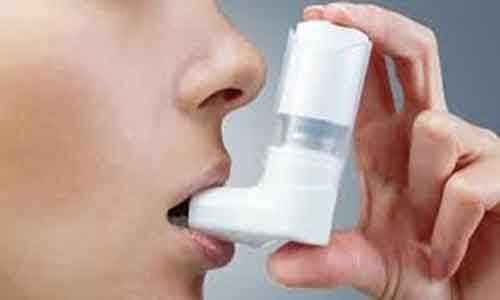- Home
- Medical news & Guidelines
- Anesthesiology
- Cardiology and CTVS
- Critical Care
- Dentistry
- Dermatology
- Diabetes and Endocrinology
- ENT
- Gastroenterology
- Medicine
- Nephrology
- Neurology
- Obstretics-Gynaecology
- Oncology
- Ophthalmology
- Orthopaedics
- Pediatrics-Neonatology
- Psychiatry
- Pulmonology
- Radiology
- Surgery
- Urology
- Laboratory Medicine
- Diet
- Nursing
- Paramedical
- Physiotherapy
- Health news
- Fact Check
- Bone Health Fact Check
- Brain Health Fact Check
- Cancer Related Fact Check
- Child Care Fact Check
- Dental and oral health fact check
- Diabetes and metabolic health fact check
- Diet and Nutrition Fact Check
- Eye and ENT Care Fact Check
- Fitness fact check
- Gut health fact check
- Heart health fact check
- Kidney health fact check
- Medical education fact check
- Men's health fact check
- Respiratory fact check
- Skin and hair care fact check
- Vaccine and Immunization fact check
- Women's health fact check
- AYUSH
- State News
- Andaman and Nicobar Islands
- Andhra Pradesh
- Arunachal Pradesh
- Assam
- Bihar
- Chandigarh
- Chattisgarh
- Dadra and Nagar Haveli
- Daman and Diu
- Delhi
- Goa
- Gujarat
- Haryana
- Himachal Pradesh
- Jammu & Kashmir
- Jharkhand
- Karnataka
- Kerala
- Ladakh
- Lakshadweep
- Madhya Pradesh
- Maharashtra
- Manipur
- Meghalaya
- Mizoram
- Nagaland
- Odisha
- Puducherry
- Punjab
- Rajasthan
- Sikkim
- Tamil Nadu
- Telangana
- Tripura
- Uttar Pradesh
- Uttrakhand
- West Bengal
- Medical Education
- Industry
Continue your Asthma medicines during Covid 19 pandemic: ACAAI

With outbreak of corona virus, patients who has respiratory problems especially asthma and asthmatic bronchitis have their concerns and apprehensions.
In response to numerous inquiries from the public, the American College of Allergy, Asthma & Immunology (ACAAI) is providing guidance on the continued use of corticosteroids for patients with allergies and asthma during the COVID-19 pandemic.
As spring allergy season sets in, allergy and asthma sufferers may be concerned that continuing their normal use of inhaled and intranasal corticosteroids may not be advisable during the pandemic. However, it is more important than ever for these patients to keep their symptoms well controlled.
The ACAAI has provided the following statement:
With the COVID-19 pandemic coinciding with the Spring allergy season, you may be concerned about using your intranasal corticosteroids for nasal allergies and your inhaled corticosteroids for your asthma. There is no data to suggest that continuing these allergy and asthma medications will have any effect on increasing your risk of getting the COVID-19 infection, or if you get the infection, lead to a worse outcome. It is important to control your allergy and asthma symptoms as they could potentially lead to misdiagnosis of COVID-19 if there were an overlap of some symptoms.
According to CDC,People with asthma may be at higher risk of getting very sick from COVID-19. COVID-19 can affect respiratory tract, cause an asthma attack, and possibly lead to pneumonia and acute respiratory disease.
There is currently no specific treatment for or vaccine to prevent COVID-19. The best way to prevent illness is to avoid being exposed to this virus.
According to the CDC, the advice for Asthma patients ISAs follows-
Take your asthma medication exactly as prescribed. Talk to your healthcare provider, insurer, and pharmacist about creating an emergency supply of prescription medications, such as asthma inhalers. Make sure that you have 30 days of non-prescription medications and supplies on hand too in case you need to stay home for a long time.
Know how to use your inhaler.
Avoid your asthma triggers.
Clean and disinfect frequently touched surfaces like tables, doorknobs, light switches, countertops, handles, desks, phones, keyboards, toilets, faucets, and sinks daily to protect yourself against COVID-19. Avoid disinfectants that can cause an asthma attack.
As more cases of COVID-19 are discovered and our communities take action to combat the spread of disease, it is natural for some people to feel concerned or stressed. Strong emotions can trigger an asthma attack. Take steps to help yourself cope with stress and anxiety.
Dr Kamal Kant Kohli-MBBS, DTCD- a chest specialist with more than 30 years of practice and a flair for writing clinical articles, Dr Kamal Kant Kohli joined Medical Dialogues as a Chief Editor of Medical News. Besides writing articles, as an editor, he proofreads and verifies all the medical content published on Medical Dialogues including those coming from journals, studies,medical conferences,guidelines etc. Email: drkohli@medicaldialogues.in. Contact no. 011-43720751


